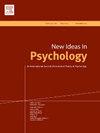Beyond sorrow and terror management Theories: A dual-emotion model of death reflection after mortality salience across cultures and time
IF 2.9
3区 心理学
Q2 PSYCHOLOGY, EXPERIMENTAL
引用次数: 0
Abstract
Confronting mortality fundamentally shapes long-term mental health and overall well-being. However, existing research has largely overlooked how the effects of mortality salience (MS)—the awareness of one's own inevitable death— vary with different cultural values and prolonged death reflection. This paper introduces a novel dual-emotion model, grounded in Terror Management Theory (TMT) and Sorrow Management Theory (SMT), that explicitly incorporates both cultural and temporal dimensions. The model posits that MS triggers two primary emotional responses: an immediate fear of self-annihilation and a sustained sadness over relational loss—with the latter being particularly pronounced in collectivist cultures. While fear fuels initial defensiveness, prolonged contemplation of mortality gives rise to sadness, which in turn fosters meaning-making and strengthens relational bonds. By integrating cross-cultural and temporal dynamics, this framework refines our understanding of MS in existential psychology and challenges universalist assumptions in death anxiety research. Moreover, the paper advocates employing computational modeling to unravel the dynamic interplay among multiple factors—including personal values, self-esteem, and intimate relationships—across diverse cultural contexts, ultimately paving the way for personalized interventions in death education, suicide prevention, end-of-life care, and grief therapy.
超越悲伤和恐惧管理理论:跨文化和时间的死亡突出后死亡反思的双重情感模型
面对死亡从根本上影响长期心理健康和整体福祉。然而,现有的研究在很大程度上忽视了死亡显著性(MS)的影响,即意识到自己不可避免的死亡,随着不同的文化价值观和对死亡的长期反思而变化。本文以恐惧管理理论(TMT)和悲伤管理理论(SMT)为基础,提出了一种新的双重情绪模型,明确地结合了文化和时间维度。该模型假设多发性硬化症引发了两种主要的情绪反应:对自我毁灭的直接恐惧和对失去关系的持续悲伤——后者在集体主义文化中尤为明显。虽然恐惧会激发最初的防御,但长时间思考死亡会引发悲伤,而悲伤反过来又会促进意义创造并加强关系纽带。通过整合跨文化和时间动态,该框架完善了我们对存在心理学中MS的理解,并挑战了死亡焦虑研究中的普遍主义假设。此外,本文提倡采用计算模型来揭示多种因素之间的动态相互作用——包括个人价值观、自尊和亲密关系——跨越不同的文化背景,最终为死亡教育、自杀预防、临终关怀和悲伤治疗的个性化干预铺平道路。
本文章由计算机程序翻译,如有差异,请以英文原文为准。
求助全文
约1分钟内获得全文
求助全文
来源期刊

New Ideas in Psychology
Multiple-
CiteScore
4.80
自引率
3.80%
发文量
37
期刊介绍:
New Ideas in Psychology is a journal for theoretical psychology in its broadest sense. We are looking for new and seminal ideas, from within Psychology and from other fields that have something to bring to Psychology. We welcome presentations and criticisms of theory, of background metaphysics, and of fundamental issues of method, both empirical and conceptual. We put special emphasis on the need for informed discussion of psychological theories to be interdisciplinary. Empirical papers are accepted at New Ideas in Psychology, but only as long as they focus on conceptual issues and are theoretically creative. We are also open to comments or debate, interviews, and book reviews.
 求助内容:
求助内容: 应助结果提醒方式:
应助结果提醒方式:


